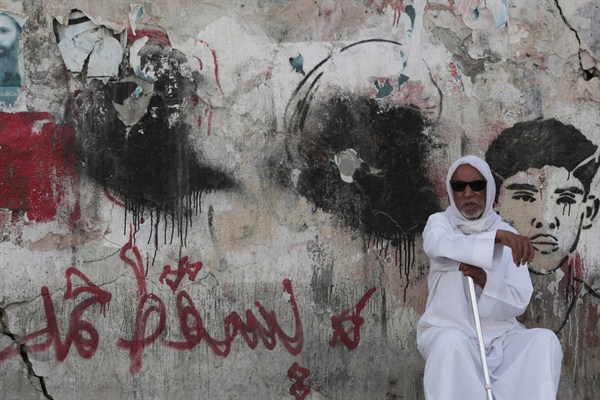Last week, 33 countries, including the United States, the United Kingdom, France and Germany, signed a letter to the U.N. Human Rights Council criticizing Bahrain’s human rights record, but also commending some of the government’s “positive steps” toward reform. It called on Bahrain to investigate claims of torture and abuse of detainees, hold perpetrators accountable and accept a visit by the U.N. Special Rapporteur on Torture. “The human rights situation in Bahrain remains an issue of serious concern to us,” said the Swiss ambassador, who read out the letter in Geneva.
It was the fifth such letter issued since Bahrain’s government responded to a popular uprising in 2011 with mass arrests and repression. This year, 14 fewer countries signed. Hopes for political reforms to address the grievances of protesters, many of them from Bahrain’s majority Shiite community, dimmed with the 2011 crackdown and then were dashed altogether when national reconciliation talks went nowhere. In September 2013, the main Shiite opposition group, al-Wefaq, boycotted the talks, and early last year the government called them off.
A kind of stasis set in as the government continued to close political space, harassing and jailing activists and opposition members and stoking more violent protests and crackdowns. The ruling al-Khalifa family, which is Sunni, succeeded in casting any and all opposition as a sectarian threat—Shiite agents of Iran intent on destabilizing Bahrain, rather than Bahraini members of a once robust civil society advocating for political reform.

